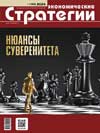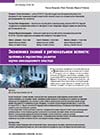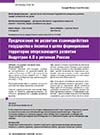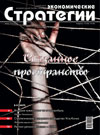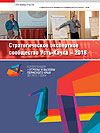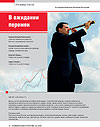Guarantees of Environmental Human Rights as One of the Aspects of Ensuring Environmental Security in the Caspian Region
DOI: 10.33917/es-2.200.2025.20-29
The article examines the issues of shaping environmental human rights as a scientific and legal category. Analysis of the influence of international law, regional and national legal systems on the development of environmental human rights is carried out. Using the example of environmental insurance and insurance coverage for the LUKOIL Group, legal instruments for guaranteeing human environmental rights as a component of environmental safety in the Caspian region are considered.
References:
1. Discuss about the UN universal declaration of human rights. The Lawyers&Jurists, available at: https://www.lawyersnjurists.com/article/discuss-universal-declarationhuman-rights/
2. Jankuv J. Concept of Substantive Human Right to Environment under International Public Law. International Journal of Liberal Arts and Social Science, 2019, no 7(2), pp. 19–29.
3. Knox J.H. Constructing the Human Right to a Healthy Environment. Annual Review of Law and Social Science, 2020, vol. 16, pp. 79–95.
4. Tret’yakova A.A. Ekologicheskie prava grazhdan v gosudarstvakh — chlenakh Evropeyskogo soyuza: Dis. … kand. yurid. nauk [Environmental Rights of Citizens in the Member States of the European Union: Diss…. Cand. of Law]. Moscow, 2001, pp. 126, 127.
5. Solntsev A.M. Sovremennoe mezhdunarodnoe pravo o zashchite okruzhayushchey sredy i ekologicheskikh pravakh cheloveka: Monografiya [Contemporary International Law on Environmental Protection and Human Environmental Rights: Monograph]. Moscow, 2013, pp. 24–68.
6. Eseyin M., Udoh S.E. When Rights Violate Rights: International Protection of Human Rights, Some Necessary Considerations. International Journal of Humanities and Social Science, 2015, vol. 5, no 6(1), June 2015, available at: https://www.ijhssnet.com/journal/index/ 3124
7. Rezolyutsiya SPCh GA OON 48/13 “Prava cheloveka na chistuyu, zdorovuyu i ustoychivuyu okruzhayushchuyu sredu” (prinyata na 48-y sessii SPCh GA OON 18 oktyabrya 2021 g.) [UN HRC Resolution 48/13 “Human Rights to a Clean, Healthy and Sustainable Environment” (adopted at the 48th session of the UN HRC on 18 October 2021)], available at: http://cawater-info.net/library/rus/un-hrs-48-13-r.pdf
8. Rezolyutsiya GA OON 76/300 “Pravo cheloveka na chistuyu, zdorovuyu i ustoychivuyu okruzhayushchuyu sredu” (prinyata na 76-y sessii GA OON 1 avgusta 2022 g.) [UNGA Resolution 76/300 “The Human Right to a Clean, Healthy and Sustainable Environment” (adopted at the 76th session of the UNGA on 1 August 2022)], available at: https://documents-dds-ny.un.org/doc/UNDOC/GEN/N22/442/80/PDF/N2244280.pdf
9. Rezolyutsiya A/RES/70/1 “Preobrazovanie nashego mira: Povestka dnya v oblasti ustoychivogo razvitiya na period do 2030 g.” (prinyata GA 25 sentyabrya 2015 g.) [Resolution A/RES/70/1 “Transforming our world: the 2030 Agenda for Sustainable Development” (adopted by the General Assembly on 25 September 2015)]. 44 p.
10. Official Records 97th plenary meeting Seventy-sixth session General Assembly United Nations, 28 July 2022, A/76/PV.97. 28 July 2022. P. 5–19.








